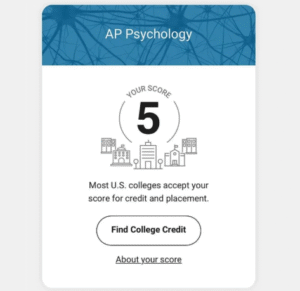8 min read

“Mountains” Images – Unsplash.com
Introduction
At the time of writing this, it’s currently February. To be specific, it’s late February. And chances are, if you’re taking an AP class, you know that the final, end-of-year AP exam is only getting closer. Soon enough, it’ll be time for you to sit down and take that exam. Are you prepared?
Chances are, you probably aren’t. That’s okay.
The good thing is, you’re early. You still have some of this month, the next month, and the month after that to study. And if you’re even luckier, you’ll even have some of May to study for it. That’s a total of three months combined (or at least close to it) across four different months.
No matter what class you’re taking, you still have time to make a comeback and rise back up.
Side Note: Even if you aren’t fortunate enough to be reading this in February, we have newer posts that’ll help you prepare even if you have less time. Ultimately, if you’re a slow learner, and take a long time to grasp ideas, then studying right now should be your main priority. However, if you’re someone whose fast at grasping concepts and can learn stuff quickly, I wouldn’t stress. You have plenty of time.
Weeks 1-2: Assess & Plan
This section covers the first 1-2 weeks of this blueprint. Here, we’re just gonna start out and go easy. Ensure that you check off all the items on the lists that follow, because you’ll need them.
Self-Assessment
Spend your first day (or hour) assessing what you’re good and what you aren’t good at. Specifically, this’ll all be related to productivity-related focuses, such as:
- Are you good at focusing for extended periods of time? Are you not? Why or why not? Do you think that you can fix it? Why or why not? How might this affect your 60-day study blueprint and what might you have to do in response?
- What study techniques suit you the best? Pomodoro? Active learning? SQ3R? Mind Mapping? Self-testing?
- How much study time suits you best? Are you better studying for hours on end, or taking occasional breaks?
- What is your fastest way of learning? How do you learn best? Are you best with reading books, articles, or online posts? Are you better with watching videos, participating in group work, listening to lectures or podcasts? In what way does your brain best capture and save information?
- What makes your brain crave the idea of learning? Researching? Group work? Documentaries? Reading articles?
- What subjects are you best at? Which ones are you the weakest in?
- Prioritize and put more effort in the subjects that challenge you the most and really make your brain start thinking and have it leave its comfort zone.
Why Self-Assessment Is Important
Assessing what you’re good at and what you’re bad at will give you a very strong idea of how to form a study blueprint that works for you. Always remember that everyone learns differently, and that one technique won’t universally work for everyone. If you expect that to be true, then you’ll be disappointed.
Post-Assessment
After you’ve gotten your results, it’s time to start creating the blueprint that suits you the best.
Develop a Study Schedule
You have the data, now it’s time to implement it. The purpose of self-assessing your strengths and weakness is to create the most optimal routine that suits you the best.
Don’t Skip This Step
The worst decision that you can make is do all of this at the last minute. Creating a study schedule at the last minute. Prioritizing good study habits at the last minute. Trying to craft a full-blown plan at the last minute. At that point, just forget it at that point. It’s too late.
That’s why it’s important to do this know. You need to know how you learn, what you’re good at, what you’re bad at, what your brain likes and dislikes, what it can and can’t grasp easily, etc.
After you get this information, you can move forward.
If you’re interested in reading a lot more in regards to how to create the most optimal study routine for the next 2 months, click here. It goes in-depth on everything study-related that you need to know to ace that next test of yours, AP or not.

“Schedule” Images – Unsplash.com
Build Good Habits
Lastly, but just as important as everything else in this post, is to build good habits.
You might have assessed yourself, and have developed a good study plan, but none of that matters if you can’t study well and efficiently.
How To Study Efficiently
- Active Learning Techniques: Instead of merely reading or listening to the material, actively engage with it through methods like summarization, questioning, and teaching. Summarize key concepts in your own words to ensure understanding and retention. Ask yourself questions about the material and try to answer them without referring to your notes. Teaching the material to someone else, whether it’s a study partner, friend, or even an imaginary audience, can deepen your understanding and highlight areas where you need clarification.
- Effective Time Management: Time management is essential for studying efficiently. Break your study material into smaller, manageable chunks or topics, and allocate specific time slots for each. Prioritize tasks based on their importance and difficulty, tackling the most challenging subjects when your focus is highest. Experiment with different study schedules to find what works best for you, whether it’s studying in shorter, focused bursts or longer, uninterrupted sessions.
- Utilize Spaced Repetition: Spaced repetition leverages the spacing effect, which suggests that information is better retained when revisited at intervals over time. Incorporate spaced repetition into your study routine by reviewing material at gradually increasing intervals. Tools like flashcards or specialized spaced repetition software can help automate this process by scheduling review sessions based on your learning progress.
- Create a Distraction-Free Environment: Minimize distractions during your study sessions by finding a quiet, well-lit, and comfortable study space. Silence notifications on your electronic devices or use apps that temporarily block distracting websites and apps. Consider using noise-canceling headphones or instrumental music to drown out background noise. Removing distractions allows you to maintain focus and concentration, leading to more productive study sessions.
- Practice Retrieval and Application: Testing yourself through practice retrieval and application exercises is an effective way to reinforce learning and assess your understanding. Use practice tests, quizzes, and sample exam questions to simulate test conditions and identify areas where you need further review. Apply your knowledge to solve problems or real-world scenarios related to the material you’re studying. Active practice strengthens neural connections and enhances long-term retention.
Why Efficient Studying Matters
Efficient studying is essential for maximizing learning outcomes and achieving academic success. By studying efficiently, individuals can optimize their time and efforts, leading to better retention of information, deeper understanding of concepts, and improved performance on exams and assessments.
Effective study techniques allow learners to engage actively with the material, manage their time effectively, and maintain focus and concentration during study sessions. Additionally, efficient studying minimizes the risk of burnout and overwhelm by breaking down complex topics into manageable chunks and providing opportunities for regular review and reinforcement.
In Short
To study efficiently, you have to do what’s best for your brain. You have to satisfy it while also providing it with information. The idea here is to tailor your learning experience, and not force anything. Do that, and you can forget about efficiency and getting any useful study time in. By implementing these strategies consistently and adapting them to individual learning styles and preferences, anyone can enhance their study habits and achieve their academic goals.

“Smart” Images – Unsplash.com
Weeks 3-4: Deep Dive Into Content Review
Here, we’ll start actually reviewing the material that you need to master before taking that exam.
Review Course Material
This means going through all your class assignments, homeworks, projects, and tests and quizzes (if they were handed back to you, of course. Hopefully your teacher didn’t everything to you on paper, and you were fortunate enough to have a majority or even all of your assignments and homework digitally. That way, navigating through everything is much easier and finding specific assignments or tasks in regards to a certain topic is as easy as can be.
However, if you don’t have access to that luxury, considering going through your notes, assignments, homeworks, and other items that’ll provide some sort of valuable information in regards to your subject.
And if you can’t do either of them, no worries. Look up your CollegeBoard AP class curriculum and there, you’ll find all the topics and concepts that you reviewed in class. There you have it. Digitalized information! The only problem in this case is that: you’re gonna have to re-do your notes. But, that should be expected. After all, you’re gonna be studying for a while.
Now, let’s review how you can review all this material.
A Brief Guide
- Prioritize by Weakness: Begin with areas you’re least confident in. The goal isn’t just to cover everything but to strengthen your understanding where it’s needed most.
- Active Learning Techniques: Instead of passively reading, engage with the material. Create flashcards for key terms and concepts. Flashcards aren’t just for memorization; they force you to recall information actively, which significantly boosts retention.
- Summarize and Teach: Try summarizing each topic in your own words, as if you were explaining it to someone else. This technique, often related to the Feynman Technique, ensures you grasp the concepts fully. If you can’t explain it simply, you may not understand it well enough.
- Practice Problems: For subjects like AP Calculus or AP Physics, doing practice problems is invaluable. Don’t just stick to the problems you know how to solve. Challenge yourself with the difficult ones, and review step-by-step solutions to understand your errors.
Utilizing Online Resources
If you’re looking for a place to learn all this material, I seriously suggest using just two things: Google and YouTube. These alone will give you the most for your time, and will give you the valuables that you’ve been searching for. Channels like CrashCourse, Bozeman Science, or Heimler’s History offer engaging, concise overviews of many AP subjects. These can be great for breaking up the monotony of textbook study and seeing the material from a new angle.
Besides those, you can also use the following:
- Khan Academy: Offers comprehensive lessons on a wide range of subjects. Their videos break down complex topics into manageable, understandable pieces. Use these to reinforce your learning or gain a different perspective on challenging subjects.
- Coursera: Provides courses from universities around the world. While it might seem advanced, diving into a college-level course on your AP subject can offer deeper insights and prepare you for questions that require a more profound understanding.
- AP Subject Review Websites: Websites like AP Central from the College Board itself, offer practice questions, past exam questions, and scoring guidelines. These resources are golden for familiarizing yourself with the exam format and expectations.
- Discussion Forums: Platforms like Reddit have communities for almost every AP subject where you can ask for help, share resources, and discuss concepts with fellow AP students.
How To Engage With Material
- Create a Study Group: Sometimes, discussing topics with peers can uncover insights you might not have considered. Tools like Zoom or Google Meet make virtual study groups easier than ever.
- Daily Review Sessions: Dedicate time each day to review what you’ve studied. Even 15-20 minutes of reviewing your notes or flashcards can significantly improve retention.
- Mock Exams: Use the weekends to take practice exams under timed conditions. This not only helps with retention but also with time management skills for the actual exam day.

“Dive” Images – Unsplash.com
Weeks 5-6: Practice & Apply
Now that you’ve built a strong foundation through comprehensive content review and leveraging online resources, weeks 5 and 6 are all about transitioning from learning to doing. It’s time to put theory into practice and refine your understanding through active application.
Practice Questions: A Strategic Approach
- Topic-Specific Drills: Start with questions related to specific topics you’ve recently reviewed. This reinforces learning and helps identify any lingering weak spots in your understanding. Don’t be discouraged by mistakes; they’re valuable learning opportunities.
- Incorporate Variety: After you’ve spent some time on topic-specific questions, mix up the practice problems. This approach mirrors the varied nature of the actual AP exam and helps you adapt to switching gears between different types of questions.
- Utilize Online Question Banks: Platforms like Albert.io offer a vast array of AP practice questions with explanations for each answer. These resources can simulate the experience of taking the exam and provide instant feedback on your performance.
- Focus on Explanation: Understanding why an answer is correct or incorrect is crucial. If you get a question wrong, spend time unraveling the explanation. Sometimes, the reasoning behind the answer can be more enlightening than the practice of answering itself.
Past Exam Papers: The Gold Standard
- Official AP Released Exams: There’s no better preparation than working through past AP exam papers provided by the College Board. These exams give you a realistic sense of the exam format, question types, and difficulty level.
- Simulate Exam Conditions: Try to replicate exam conditions as closely as possible when taking these practice exams. Time yourself, and avoid distractions. This not only prepares you for the content but also the pressure of exam day.
- Review Your Responses: After each practice exam, carefully review your answers. Identify patterns in the questions you missed and adjust your study plan to address these areas.
- AP Classroom Resources: The College Board’s AP Classroom offers additional practice questions and full-length practice exams. Make sure to utilize these resources for targeted practice.
Application and Adaptation
- Form a Study Group: Discussing practice questions and past exam problems with peers can offer new insights and explanations. Teaching a concept to someone else is often the best way to solidify your understanding.
- Seek Feedback: If possible, ask a teacher or tutor to review your answers to open-ended questions. Constructive feedback can offer new perspectives and strategies for improvement.
- Regularly Revisit Weak Areas: As you progress, continually circle back to topics or question types that challenge you. Consistent practice in these areas can turn weaknesses into strengths.
- Mindset and Reflection: Keep a positive mindset. Reflect on your progress and celebrate the improvements. Remember, every question you practice is a step closer to mastery.
The Final Push
As you work through weeks 5 and 6, remember that effective practice isn’t just about quantity; it’s about quality and intentionality. The goal is not just to answer as many questions as possible but to deepen your understanding and refine your test-taking strategies. By focusing on active practice and applying what you’ve learned, you’re building the confidence and skills needed to excel on your AP exams.

“Push” Images – Unsplash.com
Week 7: Sharpening Your Test-Taking Abilities
It’s almost time to take that exam. Are you ready? Are you not?
No matter what you answer, as you edge closer to the AP exam date, week 7 is pivotal for honing your test-taking strategies and polishing your knowledge. This week focuses on simulating real exam conditions, analyzing your performance critically, and fine-tuning your approach based on insights gained from practice tests.
Mastering Timed Practice Tests
- Create Real Exam Conditions: Find a quiet, uninterrupted space to take your practice tests, mirroring the actual exam environment as closely as possible. Use an official timer to keep track of your progress on each section, just as you will need to do during the real test.
- Use Official Practice Tests: Prioritize official AP practice tests available from the College Board or reputable AP prep books. These materials are closest to what you’ll encounter on exam day, both in terms of content and format.
- Schedule Regular Tests: Aim for at least two full-length practice tests this week. This regularity helps build endurance and comfort with the exam’s duration and intensity.
In-Depth Analysis of Practice Tests
- Review Every Answer: Go through each question, not just the ones you got wrong. Understanding why the correct answers are right enhances your grasp of the subject matter and test logic.
- Identify Patterns: Look for recurring types of mistakes. Are they concentrated in a particular topic area or question type? Such patterns reveal where your focus should be in the final stretch of your preparation.
- Seek Feedback: If possible, discuss your answers and strategies with teachers or peers. External feedback can offer new perspectives and tips for improvement.
Fine-Tuning Your Approach
- Adjust Your Study Plan: Based on your practice test performance, tweak your study plan for the remaining time. Allocate more review time to areas where you’re less confident.
- Practice Test-Taking Strategies: Experiment with different strategies, such as answering all the questions you know first or reading all the answer choices before making a selection. Find what works best for you and stick with it.
- Stress Management: Begin incorporating brief stress-relief techniques into your study routine, such as deep breathing or mindfulness exercises. Being able to calm yourself during the exam can improve focus and performance.
- Logistics Review: Familiarize yourself with the exam’s logistical details, such as the start time, location, what to bring, and -if there are- any COVID-19 protocols in place. Knowing these details in advance can ease exam day nerves.

“Test” Images – Unsplash.com
Week 8: The Final Countdown
You’re almost there! With just one week left before your AP exam, it’s crucial to strike a balance between review and relaxation to ensure you’re in peak condition on the big day. Here’s how to make the most of week 8:
Light Review: Strategy Over Cramming
- Prioritize Review Topics: Focus on the areas you’ve identified as weaknesses throughout your study period. A light touch on these topics can help reinforce your understanding without overwhelming you.
- Use Summary Materials: Revisit the summary notes, charts, or mind maps you’ve created. These should encapsulate the key points of each subject area, allowing for efficient review without the need to wade through detailed notes.
- Active Recall and Spaced Repetition: Continue using active recall techniques, such as flashcards or practice questions, focusing on those you’ve struggled with in the past. This last-minute repetition can help solidify your memory of crucial information.
Relaxation and Well-being: Prep Your Mind and Body
- Scheduled Downtime: Integrate relaxation into your schedule. Whether it’s a short walk, meditation, or a hobby you enjoy, make time to unwind and clear your mind.
- Sleep: Prioritize getting a full night’s sleep, especially in the days leading up to the exam. Adequate rest is crucial for memory consolidation and ensuring you’re mentally sharp.
- Nutrition and Hydration: Maintain a balanced diet rich in nutrients that support brain function, such as omega-3 fatty acids, antioxidants, and vitamins. Stay hydrated to ensure optimal cognitive performance.
Exam Day Preparation: Know Before You Go
- Review Exam Logistics: Double-check the exam time, location, and any specific requirements or restrictions. Ensure you know the route and have a plan to arrive early, avoiding any last-minute stress.
- Pack Your Bag: Prepare everything you’ll need for the exam the night before. This includes pens, pencils, a calculator (if allowed), your ID, and snacks or water for breaks, adhering to the exam policies.
- Familiarize Yourself with the Exam Structure: Have a clear understanding of the exam format, including the types of questions you’ll face, the scoring system, and how time is allocated across sections. This knowledge can help reduce anxiety and improve time management during the test.
Embracing Confidence
Remember, by this point, you’ve done the bulk of the work. Trust in your preparation, stay positive, and approach the exam with confidence. Avoid cramming or stressing over minor details in the last few days. Instead, focus on maintaining a positive mindset, reviewing strategically, and ensuring you’re physically and mentally prepared for exam day.

“Relax” Images – Unsplash.com
A Little Note From Us
All of us here have taken some test in our lifetime. The truth is, life itself is a test. Many just don’t end up seeing that, even if they’ve spent 10, 20, 30, 40, 50, 60, or even 70 years on this beautiful planet that we call Earth.
Of course, this seems a little far-fetched. Isn’t this supposed to be an AP test prep blog?
And, you’re right. But, there’s something you need to know before leaving here today. That note is that no matter how you do on that AP test, you’ll be okay. Life has its roadblocks and way of slamming doors in your face rather than opening it, but just because you failed some test in school, doesn’t mean that are destined your failure and that it’s inevitable. It’s not.
That mindset will convert you from a winner into a loser. And you don’t want that, do you?
Besides, if you’re lucky enough to be reading this post, you’ll do just fine. Prioritize the difficult subjects, master your learning senses, and make the most of every minute that you spend studying. After all, you could be doing something more enjoyable, right? Right.
Other Helpful Tips That Might Suit You
- Interleaved Practice
Unlike blocked practice, which involves studying a single topic extensively before moving on to another, interleaved practice suggests mixing different topics or types of problems within a single study session. This approach is believed to improve discrimination between concepts and enhance problem-solving skills. A study by Rohrer and Taylor (2007) found that interleaving helps students distinguish between types of problems more effectively, leading to better performance on math exams. - Self-explanation
Self-explanation involves explaining and interpreting study material in one’s own words. A meta-analysis by Wylie and Chi (2014) highlighted the effectiveness of self-explanation in improving learning outcomes across various domains. This technique encourages deeper processing and integration of new information with existing knowledge, enhancing understanding and recall. - Dual Coding
Dual coding theory proposes that combining verbal and visual information can enhance learning. By creating mental images of the material or using diagrams alongside text, students can create two memory traces instead of one. Research by Sadoski and Paivio suggests that this method can improve memory retention and understanding. For instance, when studying complex processes or systems, drawing diagrams or using flashcards with both words and pictures can be particularly effective. - Retrieval Practice
Retrieval practice, or practice testing, involves actively recalling information from memory rather than merely rereading it. The “testing effect,” as highlighted in research by Roediger and Karpicke (2006), demonstrates that taking practice tests can significantly enhance long-term memory and understanding of the material, more so than continuous review. - Mnemonic Devices
Mnemonic devices are memory aids that help encode difficult-to-remember information into a more memorable form. Studies on mnemonic usage, like those by Bellezza (1981), suggest they can significantly aid in memorizing complex information, such as formulas, historical dates, or sequences.- For example, if you had trouble remembering PEMDAS, you could substitute it for Please Excuse My Dear Aunt Sally, which for many, is more memorable and easier to remember than Parentheses Exponents Multiplication Division Addition Subtraction.

“Practice” Images – Unsplash.com
Conclusion
Studying for pretty much anything school-related is such a time-intensive activity. But, it doesn’t have to be.
The reason why studying days, weeks, or even months prior to an exam is that you don’t have to spend much time every day to actually do good on them. As long as you spend a short time block (30 minutes for example) every single day, without excuse, your brain will be trained long and hard enough to remember that information on command. The question here is, are you willing to do the same?



